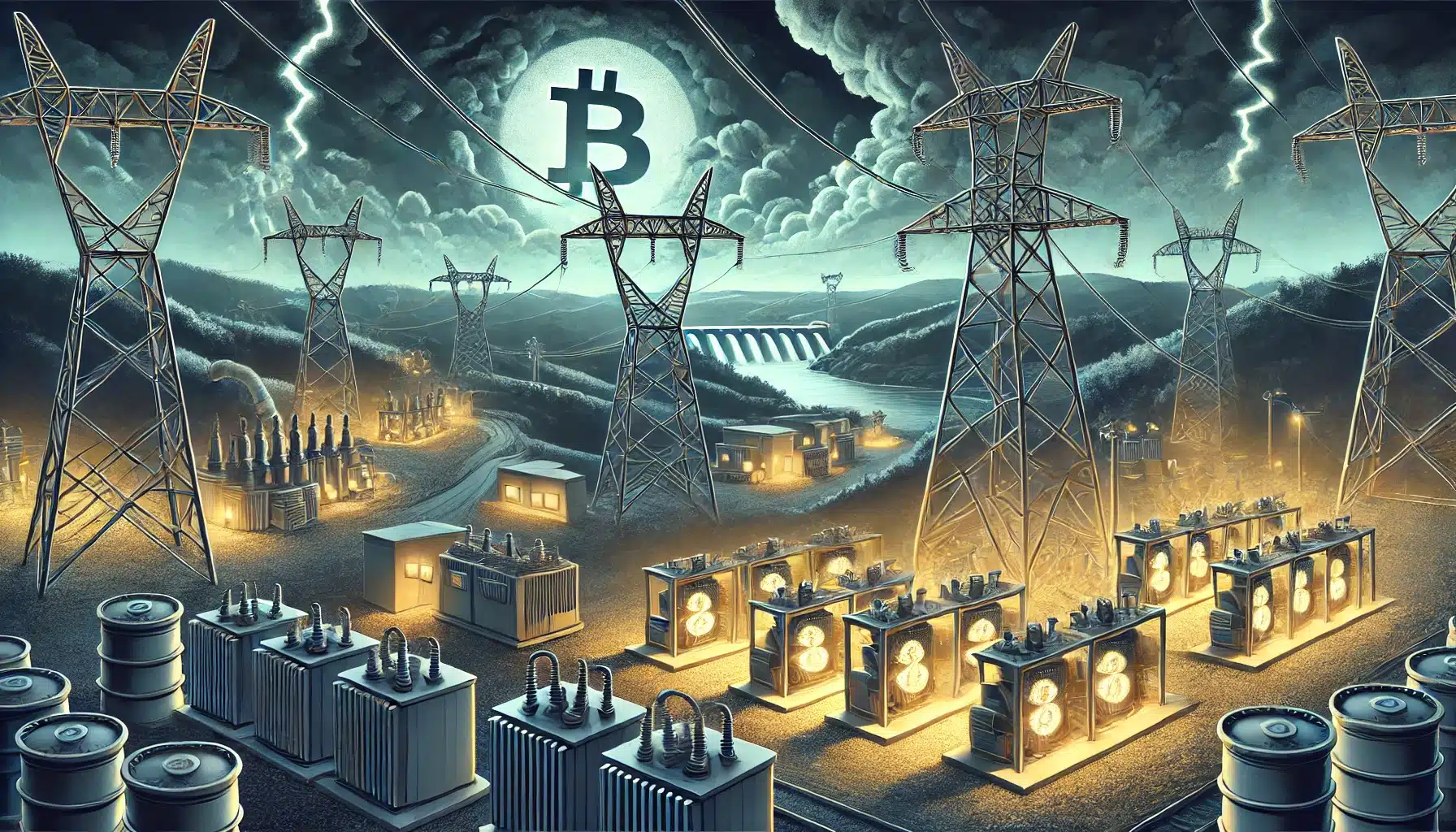Nine Bitcoin mining firms have halted their operations following power fee increases for high-consumption clients in Paraguay. Data from the National Power Administration of Paraguay (ANDE) indicates that these firms had their services cut due to payment interruptions or chose to cease operations voluntarily.
Power Fee Increases Impact Bitcoin Miners in Paraguay
The income generated from power sales to Bitcoin miners is beginning to suffer due to measures implemented by ANDE. Hugo Rolon, the commercial manager at ANDE, mentioned that, although no contract cancellations followed the recent fee hikes for Bitcoin miners, there have been service interruptions.
In remarks to local media, Rolon stated: “As for crypto mining clients, we have not processed any contract cancellation requests; however, nine clients have had their service terminated due to unpaid invoices or because, once they were categorised correctly, they indicated they would not continue their activities.”

Industry representatives had previously cautioned about the repercussions of the recent rate increases, which raised energy costs for miners by as much as 16%, depending on their power usage. Fernando Arriola, director of the Paraguayan Fintech Chamber, warned that the country could become irrelevant to the mining sector because of these hikes.
Previously, some firms indicated the likelihood of relocating to Brazil. Last month, one of these companies, Penguin, revealed it had finalised a 400MW agreement in Brazil, with negotiations for another 400MW ongoing. Bruno Vaccotti, the Chief of Public Affairs at Penguin, criticised this rate increase as “excessive greed” from the Paraguayan government.
Bitcoin miners attempted to engage with the Paraguayan president to address the adverse effects of this action or to prevent its implementation. However, President Santiago Peña dismissed these concerns, asserting that while the measure would lower profit margins for the activity, it would not dissuade miners from operating within the country.

Paraguay’s Crypto Mining Ban Proposal Sparks Controversy
Paraguay may soon join China in banning crypto mining as the government becomes increasingly concerned over the impact of the activity on power consumption. A proposal for an initial moratorium on mining and related activities was made by the Senate on April 4th, which led to the question of cryptocurrencies’ presence in Paraguay and the significant energy consumption of the crypto-mining industry.
Energy Drain and the Rationale Behind the Ban
The principal reason which has been provided for the proposed ban seems to emanate from concerns about the strain which has been placed on Paraguay’s electricity grid by a rising demand from mining industries. The proposal has been endorsed by the Paraguayan senator Maria Soares; she noted ‘There is a growing concern over the questionable contracting of power in accord with illicit mining of cryptocurrencies’, these transportation of power is inhumane and hampers regular industries and homes, Soares’ concern is justified given that a large portion of Paraguay’s energy produced comes from the Itaipu Dam, one of the world’s largest hydroelectric power stations However, recent droughts have influenced water levels decrease which led to less electricity generation in general, and additive-irresponsible energy consumption by crypto miners raised concerns about blackouts.

Industry Backlash as Concerns Rise Over Lost Revenue
The proposed ban has faced strong pushback from the crypto-mining sector. Jaran Mellerud, co-founder of Hashlabs Mining, a prominent player in Paraguay’s crypto-mining landscape, stated, “A ban, even temporary, would be disastrous. It would cripple our operations and cost us an estimated USD 200 million annually. We contribute significantly to Paraguay’s trade balance, and this move sends a negative message to potential investors.” Mellerud’s concerns emphasise the economic implications of the ban, as Paraguay has become a crypto haven in recent years, attracting miners due to low electricity costs and lenient regulations, thereby generating jobs and foreign investment vital for the nation’s economic growth.




























